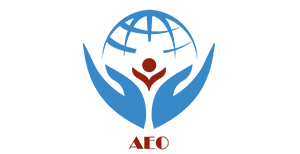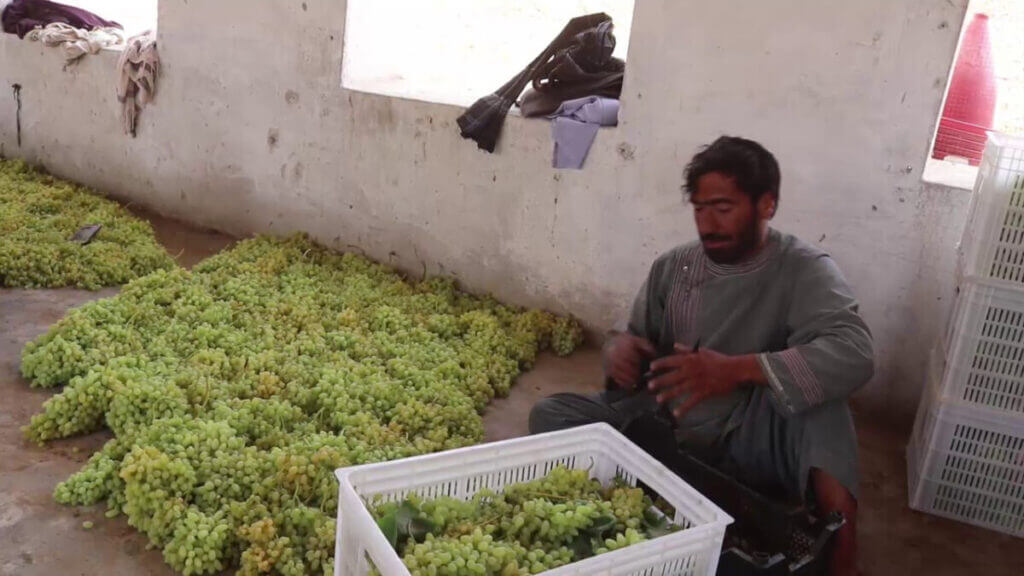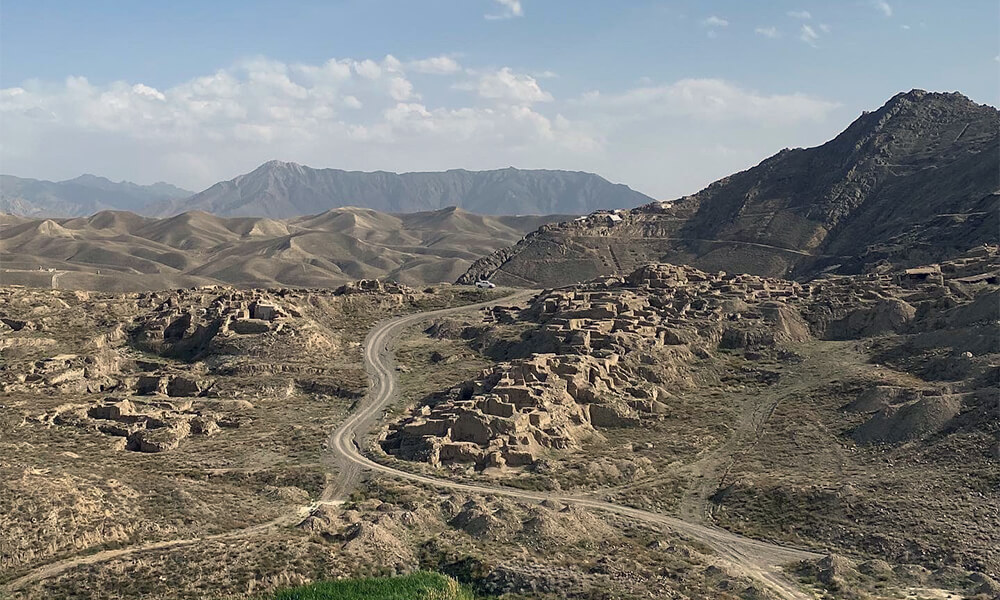Afghanistan Economic Outlook
June 2023

Afghanistan Economic Outlook, is a creative initiative of the Afghanistan Economic and Legal Studies Organization (AELSO) which reflects most important & the latest economic events that happened during a month in Afghanistan.
By reading this economic newsletter, that has designed in three languages (Pashto, Dari & English), you can get a wider overview of Afghanistan’s economic situation.
Afghanistan Exports Surpasses $350M in First Quarter of Solar Year: MoIC
The Ministry of Industry and Commerce (MoIC) said that exports surpassed $350 million in the first quarter of 1402 solar year.

The MoIC’s spokesman, Abdul Salam Javad, said that the rate of export has increased 5 percent compared to the same period in 2022.
According to Javad, most of the exports have been to Pakistan, India, China and Iran.
“The majority of our export items were fresh fruits, dry fruit, carpets and saffron. They were exported to India, Pakistan, China, Iran and the UAE,” he said.
This comes as the Afghanistan Chamber of Commerce and Investment said that the world markets, particularly in Russia, needs Afghan agriculture products. Khanjan Alokozai, a member of the ACCI, called for facilitation of air-corridor to pave the way for an increase of exports of Afghan products.
“As Central Asia and Iran have the same fruits, we don’t have a good market there. We have a market in Russia but unfortunately the transit path is a problem as it passes through four and five Central Asian countries,” he said.
Traders meanwhile expressed concerns about challenges in the issuance of business visas, saying that only Pakistan, Iran, and China are distributing visas for trade.
The economists said that the increase in exports has also caused a surge in the country’s national revenue.
“(The increase of our exports) has caused the stabilization of our national currency, moderation in trade balance,” said Azeraksh Hafizi, an economist.
Earlier, the MoIC said that the rate of Afghanistan’s exports reached more than $2 billion in the1401 solar year.
China fast becoming a lucrative market for Afghan carpets
China is fast becoming a lucrative market for Afghan products, including handmade carpets, pine nuts and other goods.

Speaking to China’s Xinhua news agency, one carpet weaver in Kabul, Safiullah, said he is trying to produce as many carpets as possible for the Chinese market.
“The demand for hand-woven and high-quality carpets is on a constant rise in the [Chinese] market,” Safiullah told Xinhua, suggesting that the promotion of the art of carpet weaving could help low-income families improve their living conditions.
Safiullah’s impoverished family sees this as a great chance to overcome their economic hardship thanks to China, considered one of the most suitable markets for Afghan products.
Following the launch of a direct flight between Kabul and the northwestern city of Urumqi in China, trade between the two countries is expected to increase – including the trade of carpets.
“Export of Afghan carpets to China has significantly increased, leading us to sell more carpets and thus facilitating us to hire more workers in the industry,” Sayed Bilal Farooqi, a member of the Afghan Carpet Union, told Xinhua.
Afghanistan, according to the Union of Carpet Producers and Exporters, has exported more than one million square meters of carpets to China over the past two years.
Like carpets, pine nuts have also become a major export item of Afghanistan. The Ministry of Economy estimates that the government will earn about $2 billion annually from pine nut exports, mainly to China, within the next few years.
Kandahar grapes being exported to Pakistan daily
Local officials in Kandahar province said on Wednesday that the export of grapes from the province has started, with up to 400 tons currently being exported to Pakistan a day.

Officials said the grapes are being transported overland in refrigerated trucks, through Spin Boldak. However, traders have asked for more facilities at the customs point in order to prevent the grapes from spoiling.
Local farmers have meanwhile said the grapes are of a high quality.
“We are trying hard to export grapes. First we cut with a saw, then we cut with scissors, then we move the grapes in a net and load it into the containers and turn on the cooler to cool the grapes and prevent them from spoiling,” said Qadratullah, a grape farmer in Kandahar.
According to the local officials, about 20 refrigerated trucks are loaded with grapes every day and drive through to Pakistan.
A number of traders in Kandahar say that trucks loaded with grapes are inspected, which is contrary to an agreement, and the inspection process is time-consuming and can spoil the grapes, so they want facilities to be provided at Spin Boldak Customs to prevent this.
On the other hand, officials in the Fresh Fruit Export Commission say that the problem in Spin Boldak is not big and they are trying to solve it.
According to statistics, 250,000 tons of fresh fruits were exported from Kandahar last year.
Officials say that this year, due to the increase in fruit yields, the amount of exports will also increase.
Islamic Development Bank pledges $8.1 million to help Afghanistan
The Islamic Development Bank (IDB) has signed cooperation agreements worth $8.1 million with six international humanitarian agencies to help the people of Afghanistan in various sectors.

The contracts are in the areas of food security, drinking water supply, health and in agriculture in different provinces of the country.
The Ministry of Finance in a statement welcomed the move.
“The Ministry of Finance welcomes this good action of the Organization of Islamic Cooperation, the Islamic Development Bank, the King Salman charity, the Saudi Fund and the member countries of the Organization of Islamic Cooperation and expresses its gratitude and appreciation for their humanitarian and generous assistance to the people of Afghanistan,” the statement said.
The Ministry of Finance called on all humanitarian aid organizations to design projects, taking into account the realities and priorities of the society and with the coordination of the ministry, so that the existing problems of the people are “completely solved.”
Mes Aynak mining still on hold as company deals with challenges

According to John J. Coy, the vice president of MJAM, land acquisition around the mine is one major obstacle that is currently preventing the company from starting work.
Coy said the company cannot solve this problem alone and requires the Islamic Emirate of Afghanistan’s cooperation.
In addition to the land acquisition issues, it is reported that other major obstacles also exist and require resolution before the project can begin. Coy suggested that the Aynak copper mine contract needs to be reviewed in light of current challenges, and that there should be more dialogue between the Chinese company and the Islamic Emirate.
In return for the contract, the company is contractually bound to help needy families in the area with aid.
In the meantime, the Minister of Culture and Arts, Atiqullah Azizi, has stated that his ministry has prepared a plan to preserve the ancient Aynak copper mining site where countless artifacts have been found. Azizi says his ministry is currently in talks with a company to carry out this work and hopes to start practical work on the project as soon as possible.
Shokrallah, a representative from the Ministry of Mines and Petroleum, says the ministry is working to start practical work on mining the Aynak copper mine. However, the ministry acknowledges that they are in talks with MJAM to resolve the differences about this project.
The Aynak copper mine extraction contract was won by MJAM back in 2007. Since then, security problems and the presence of ancient artifacts in the mining area have prevented the company from starting work on the project, leading officials to seek out solutions and dialogue with the Islamic Emirate to resolve the problems.
